Good manners are something very important that a child should learn. It is often heard that if a child has good manners, people around will label the child as God-gifted. But that is not the case.
Yes, it comes to some kids more easily than others, but there is always an adult teaching them how to behave better, nurturing them from day one, and spending all their time and energy preparing their child for the world.
As parents or caregivers, it becomes our duty to teach our children good manners, as it is more humane, more civilized, and more pleasing to see a person with good manners than to see and be with someone, who never says please or thank you to anyone, or does not know how to behave in public.
Good manners teach us to live together in a better way, where you care about others too. A child who has good manners will be noticed and appreciated more by the teachers, parents, relatives, and everyone. Here we are not teaching our kids to gain an appreciation of others, but we are teaching them how to behave well, understand the feelings of others, and react appropriately.
It is not very difficult to teach the child good manners. The key is to start early and very calmly and politely even when the child doesn’t behave well.
In This Article
Start early
Starting early is the key to most things and so is for teaching good manners. No, your child is not too young to learn. When your child starts recognizing you and you are talking to your child, always talk calmly and politely. Yes, it is part of teaching good manners to your child.
If you start early the child will perceive it as the right way, and anywhere or anyone the child sees doing something wrong your child will understand and recognize the difference. For e.g. a child who knows throwing wrappers or waste on the road or in the park is bad manners when sees any other person doing it will know that the other person is doing something wrong.
Now in this case, either the child will understand that it was wrong or the child will start doing the same. Here comes the role of a parent. The parent at this time can make sure the child understands the difference between good and bad manners.
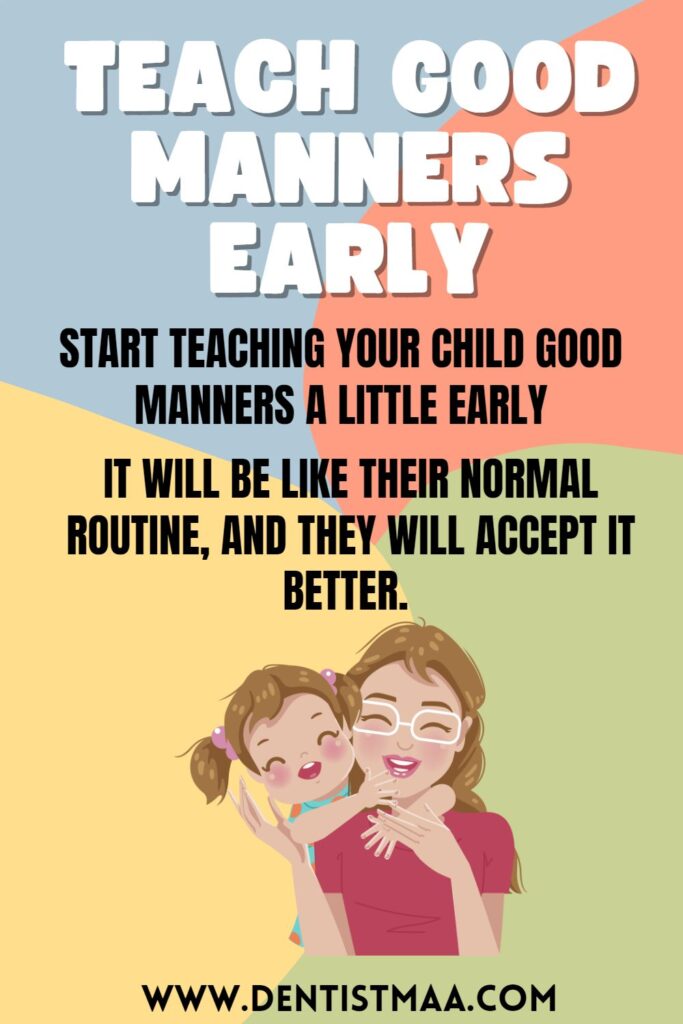
Read: 10 Most Important Social Skills Kids Need To Learn
Model what you preach
You are your child’s first teacher. They will do what they see. If you behave in a good way, so will the child. If the child sees the parent littering around the whole time, the child will learn the same. So, to help your child learn good manners, you will first have to model good manners yourself.
As the famous saying goes, “Practice what you preach.” So, what you will do? They learn from actions more than from words.
Related: 15 Positive Parenting Tips!
Teach them to be polite
Politeness is the key to many problems. Being polite calms down the other person as well. Politeness also gives assurance. Teach your child to talk politely to everyone.
For them to understand this, you will have to talk politely to others and even to the child. They will learn what they see. If you see them being harsh or rude, just tell them politely.
Remind them to say “Please” when they ask for something
“Please” is another word the child should learn when you are teaching him or her good manners. Saying please when they ask for some help or something is a very good and polite way to talk.
You can model it every day when you talk to your child saying, “Please can you do your homework.” or “Please can you switch off the lights.” or anything that you are asking your child to do.
Slowly the child will start incorporating “Please” in their day-to-day talks with everyone.
Remind them to say “Sorry” when they do something wrong
“Sorry” is another powerful word. When you do something wrong unintentionally you say “Sorry”. When you say “Sorry” it increases the bonding. But tell the child what “Sorry” means. Do not just teach them to say “Sorry” when they do something wrong.
“Sorry” means “I will not do it again.” So, the child should understand what they are saying “Sorry” for and that they would not be repeating it in the future.
Remind them to say “Thank you” when someone helps them

Saying “thank you” is one of the best ways of expressing gratitude. Teach your child to say thank you whenever someone helps them, praises them, or gives them a gift.
The child will initially forget to say thank you. Just remind them politely when they forget. Slowly they will start talking on their own whenever the situation comes. It is one of the good manners your child should learn.
Please, Thank you and Sorry are the “3 Magic Words.”
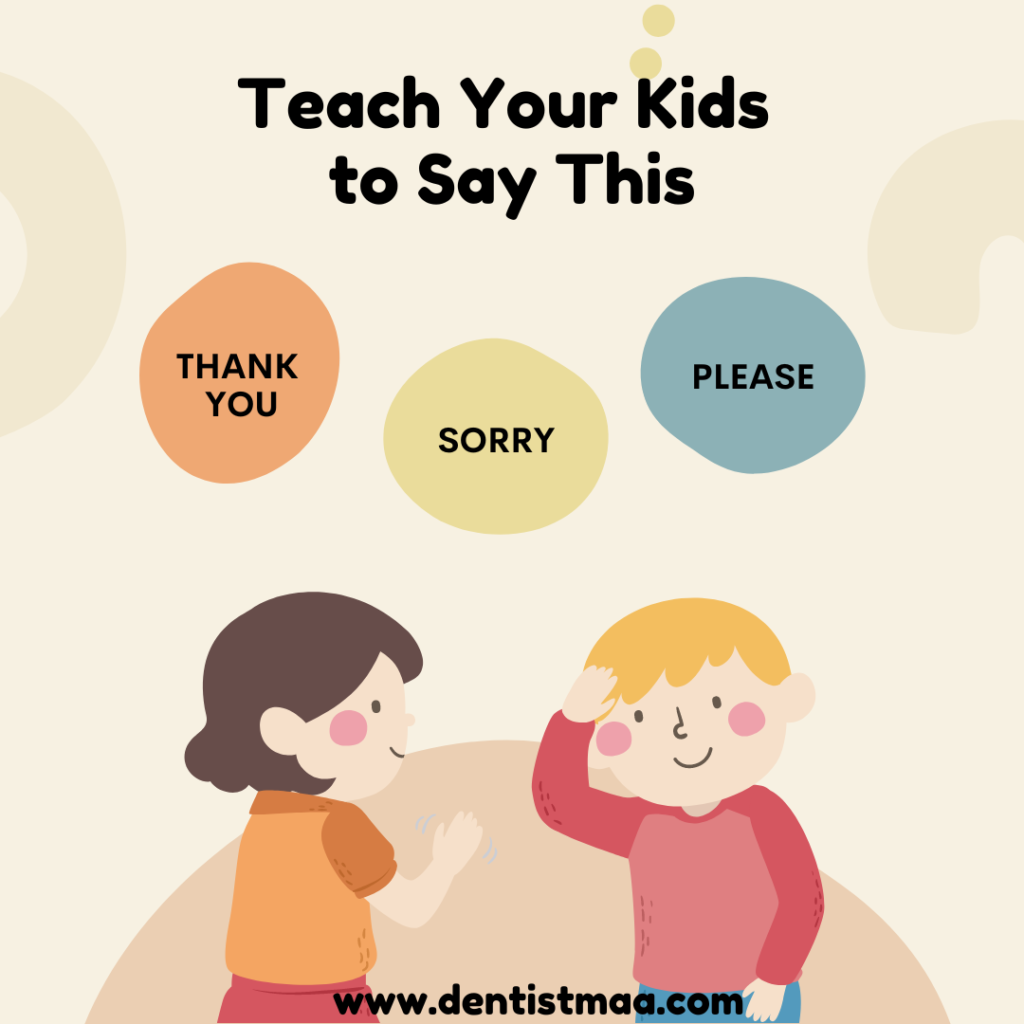
Teach them not to interrupt people in conversations
This is one important good manner your child will have to learn. Tell your child when you are speaking to someone else they need to wait for their turn to come. In schools, kids are not allowed to talk haphazardly. They are taught to raise their hands when they want to speak and will be given their turns when one person is done talking.
Tell them why is it important to wait for their turn. Tell them this way everyone will get a chance to talk and you will be able to understand both them and the other person. If two people talk together no one can be heard clearly and understood.
Appreciate them when they follow it and tell them they did well.
Teach them about sharing
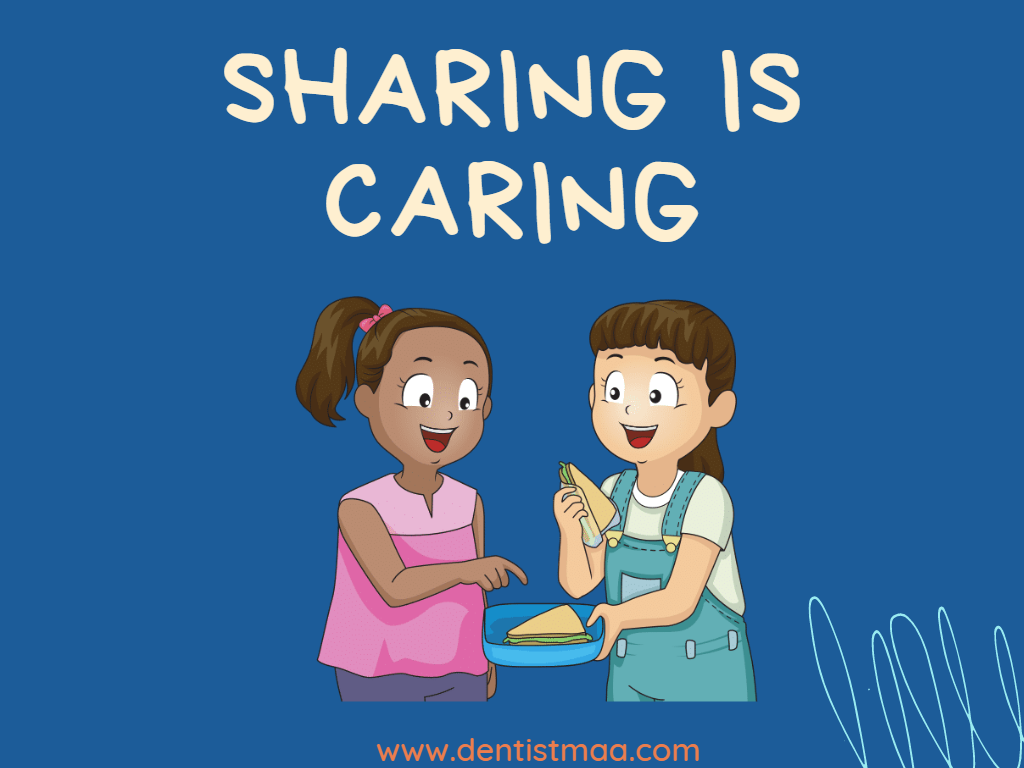
Sharing is one important aspect of human behaviour. We need to share our things to help someone else, be close to the other person or just to show concern. Teach your child to share their food, their toys, colours, etc.
In schools also kids are made to sit in groups where they can share the stuff they are given to do the activities. Say, it is an arts and crafts class, and the children will be given a box of crayons to colour from. This way they will learn to share and respect each other. Small activity with big meaning.
Avoid screaming
Screaming will not do any good to the child as well as to you. Screaming will make the situation worse. Yes, it is understandable that you might lose your patience once in a while, but doing it every day all the time when the child is not listening or doing something wrong is not the solution.
Sit with the child and explain politely how he or she needs to do something. Make sure the child is not scared or confused. If dealt with politeness the child will understand better and will try to do better the next time.
Teach table manners
Teaching table manners is important too. Right after the child starts sitting, make the child sit on a high chair. Slowly start teaching how to hold the spoon and the fork. The child will make a mess in the beginning but slowly start teaching the child the appropriate way of eating.
The child will learn. Teach them how to hold a sandwich, how to roll spaghetti, or how to cut something with a knife and hold it with a fork. It takes time, but the child learns.
Praise when they behave well

Praising the child for anything and everything they do well is one of the best ways of saying yes you can do it. If you are telling them that something they are doing is wrong, also tell them when they are doing something good. This will make them happy and will want to do it more often. So, praise them and it will act as positive reinforcement.
Related: 40 Positive Words Your Child Needs to Hear
Good manners are something all children and adults should know. If that happens the world will be a better place to live in. And the change should start from our home. If the child learns good manners, they will learn how to differentiate between right and wrong. They will learn how to take the right decisions for themselves when they grow up. So, teaching your child good manners is a way of teaching them about life, which will help them later.
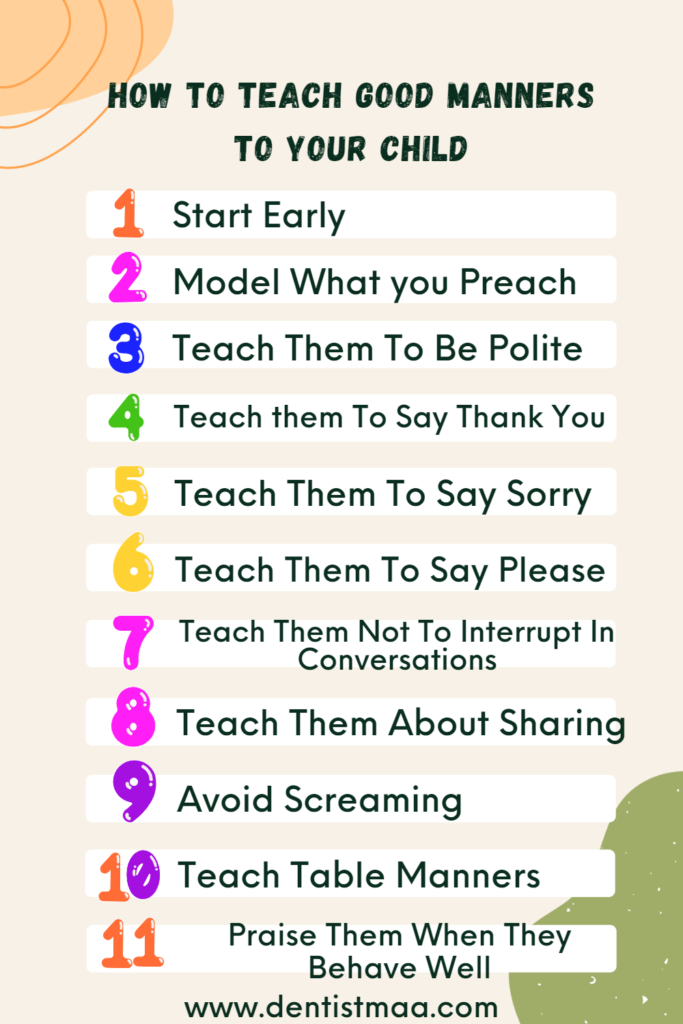

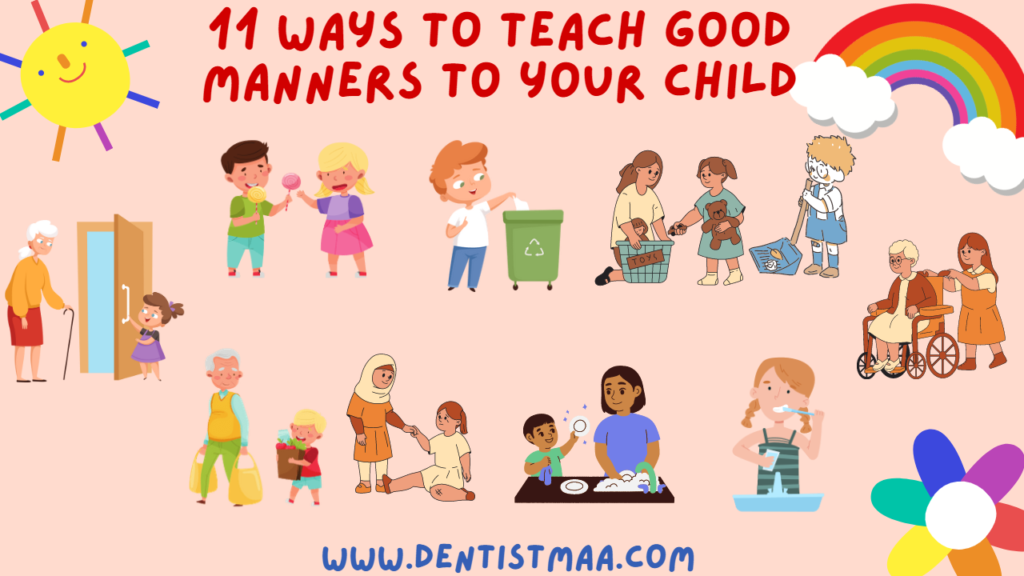



Pingback: Importance Of Playdates For Kids - DentistMaa
Gud one
thank you 🙂
Good one